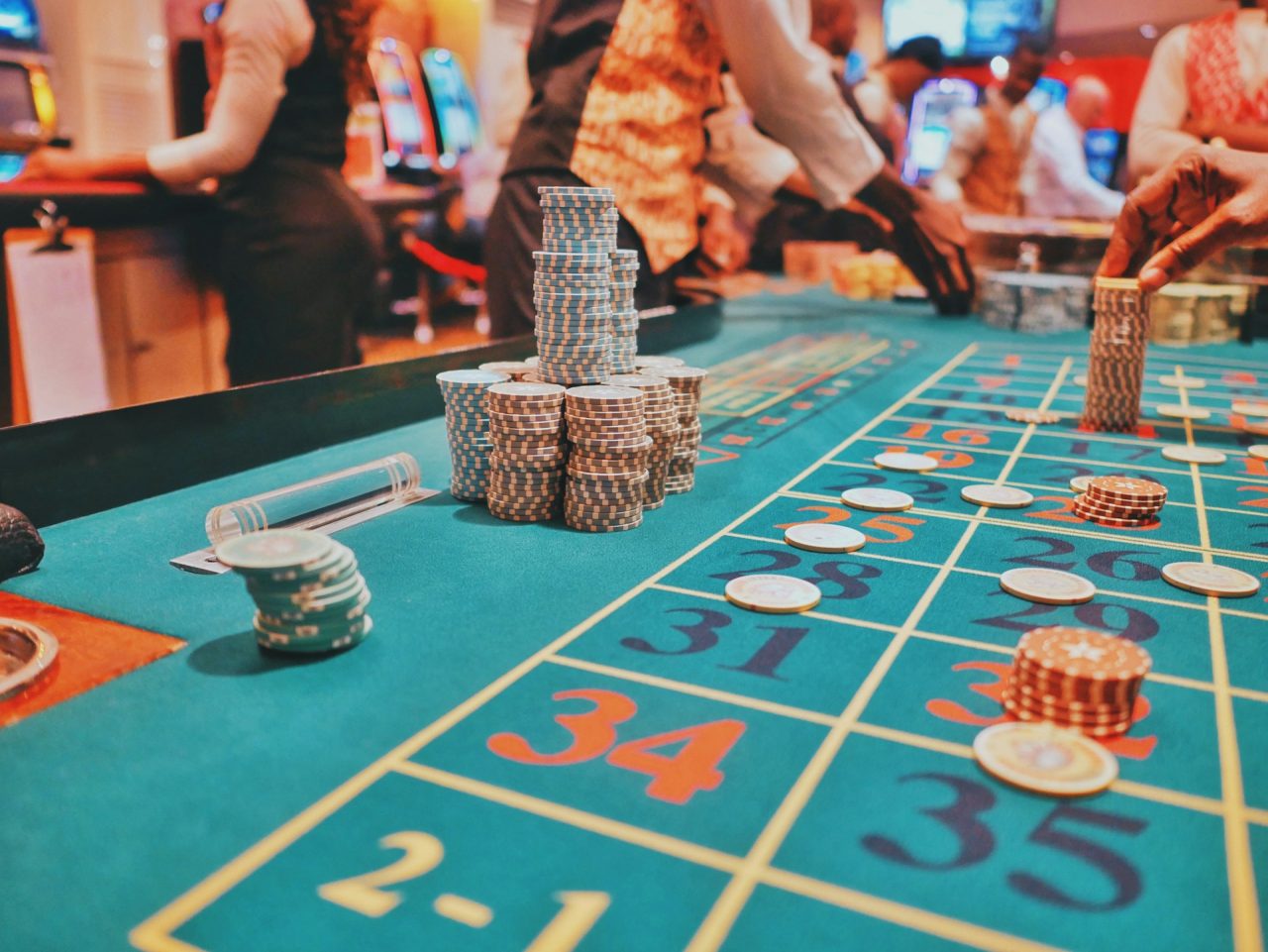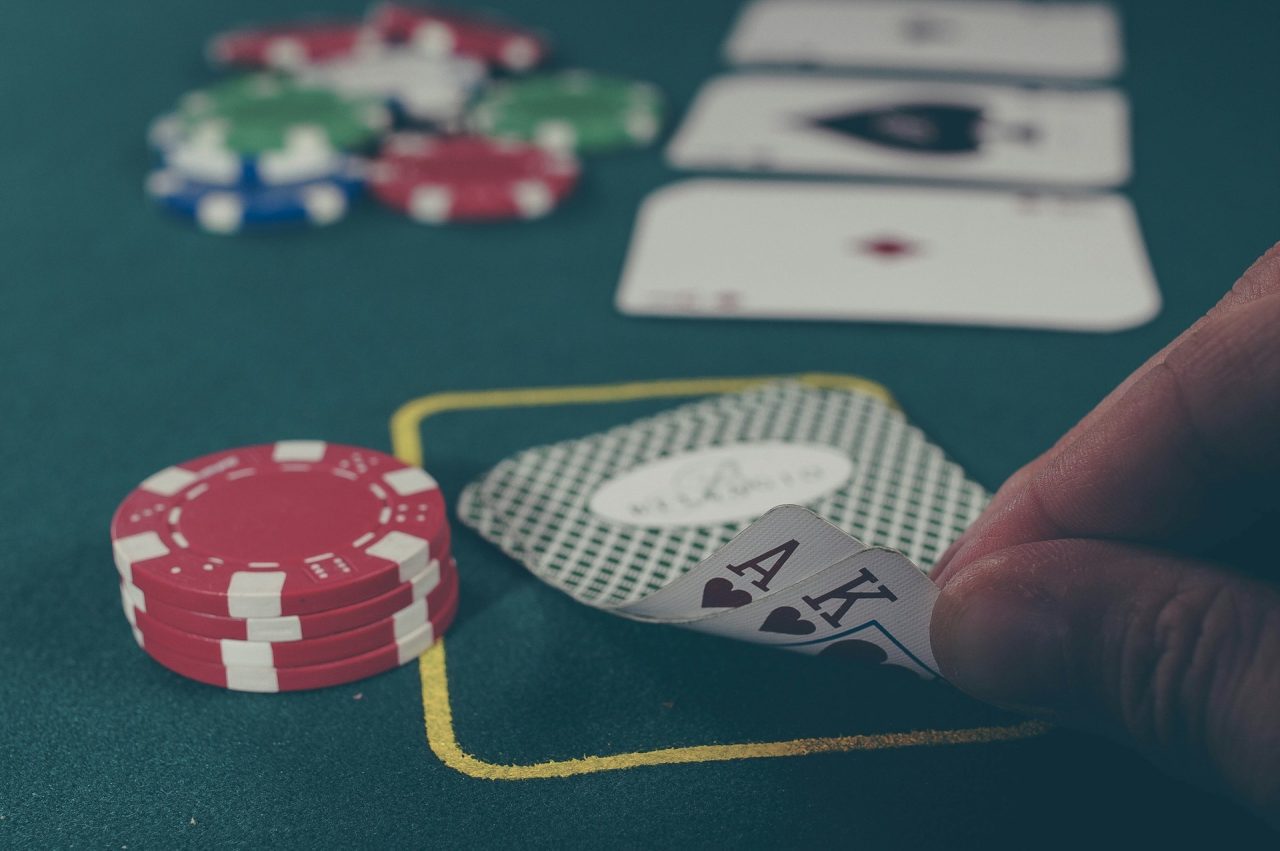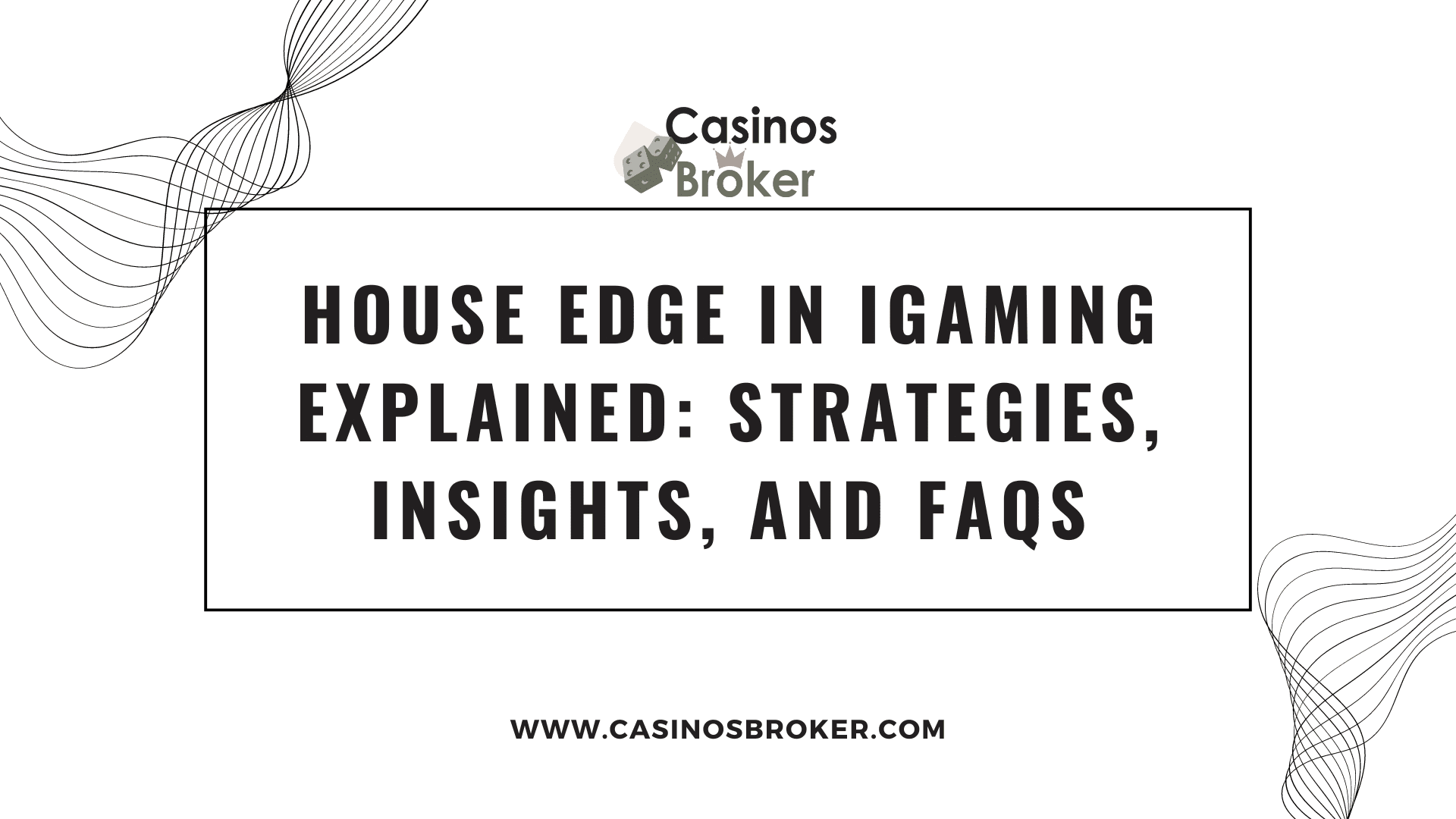In the realm of iGaming, where online casinos and sportsbooks dominate, one term stands out above all: ‘House Edge’. But what exactly is House Edge, and why is it significant for both iGaming operators and players?
House Edge, also referred to as ‘House Advantage’ or ‘Casino Edge’, is the unseen force that dictates the odds, impacts your winnings (or losses), and serves as a fundamental pillar of any online casino or sportsbook operator’s financial strategy.
Whether you’re a veteran player seeking the best possible odds or a savvy operator striving for long-term success, understanding House Edge is essential. In this article, we will explain the concept of House Edge, highlight its importance, and explore its role in iGaming.
Understanding House Edge in iGaming
At its essence, the House Edge signifies the mathematical advantage that gambling games inherently possess over players. For operators, this ensures their casino and sportsbook operations remain profitable over the long term.
Tracing its origins to early gambling forms, the concept of House Edge acknowledges that all games must be slightly skewed in favor of the ‘house’ to cover costs and generate profits. It’s the primary reason why, despite players’ lucky streaks, the house maintains a mathematical edge over time.

What is House Edge and Why Does It Matter?
As mentioned earlier, House Edge is the built-in advantage casinos and sportsbooks have over players. It’s crucial to understand that House Edge isn’t about ‘rigging’ games or ‘cheating’ players out of potential wins.
Here’s how House Edge applies to online casinos and sportsbooks:
House Edge in Casino Games: For games like slots, roulette, or blackjack, the House Edge is a percentage embedded in the game rules. It represents the average amount a player can expect to lose compared to their original bet over an extended period. For instance, a slots House Edge of 4% means that over time, a player can expect to lose an average of €4 for every €100 wagered.
House Edge in Sports Betting: Sportsbooks set odds incorporating a House Edge known as ‘vigorish’, ‘the vig’, or ‘juice’—a fee charged by bookmakers for accepting a wager. This ensures that regardless of which team wins, the sportsbook can still make a profit. For example, if the sportsbook offers odds of 1.90 for a team to win, a successful €100 bet would pay out €190 (your original stake plus €90 in winnings). However, if the ‘fair’ odds are closer to 1.85, the difference (the sports betting vigorish or juice) represents the sportsbook’s built-in House Edge of about 2.6%.
House Edge in Poker: In poker rooms, both online and land-based, the House Edge takes the form of a ‘rake’, a commission fee taken by the house per pot or hand, depending on the stakes and game type. This fee is usually a percentage of the pot or a sliding scale commission capped at a maximum amount. For example, a typical rake might be 5% of the pot up to a maximum of €5. This rake ensures the poker room profits regardless of which player wins, covering operational costs and generating revenue.
For operators, House Edge is essential for setting odds that guarantee long-term profitability while maintaining fairness and ensuring a sustainable business model. For players, understanding House Edge means recognizing those games where their chances might be slightly better than others.
Calculating House Edge: Understanding the Numbers
The calculation of House Edge might seem overly complex, but it essentially boils down to the relationship between the probability of winning and the payout ratio.
For instance, if flipping a coin was a game offered by an online casino, a 50% chance of winning would suggest an even House Edge. However, if the game’s payout is less than what would be expected based on the odds of winning, then the difference between the expected payout and the actual payout represents the House Edge.
Example: European Roulette
Let’s consider a simplified example with European Roulette to put this into an iGaming perspective:
- You bet €1 on a single number in European Roulette (which has 37 pockets).
- Your chance of winning is 1/37, or 0.027.
- The house’s expected profit on this bet is roughly €0.027.
- House Edge for this bet = (€0.027 / €1) x 100 = 2.7%.
To calculate the House Edge, subtract the total winnings of players from their total bets, and then divide the result by the total bets. Multiply this by 100 to express it as a percentage. This shows the portion of the bets that the ‘house’ keeps as profit on average.
House Edge vs. Return to Player (RTP)
Before diving deeper into complex calculations, it’s essential to differentiate between House Edge and its counterpart, the Return to Player (RTP) rate, as both concepts play key roles in iGaming.
- House Edge: This is the percentage of each bet that the casino expects to keep over the long run. It’s calculated by comparing the game’s probability of winning to the actual payout.
- Return to Player (RTP): This is the percentage of total money wagered on a game that is expected to be paid back to players over time. It is the inverse of the House Edge. For example, if a game has a House Edge of 2.7%, the RTP would be 97.3%.
Understanding these numbers is crucial for both operators and players. Operators use House Edge to ensure profitability, while players use RTP to gauge which games offer the best chances of winning over time.
House Edge vs. RTP: Everything You Need to Know
The relationship between House Edge and Return to Player (RTP) is a tale of two perspectives: one focuses on the online casino or sportsbook’s long-term advantage, and the other on the theoretical percentage an online casino game is designed to pay back to players over time.
Balancing these metrics is an ‘art’ that can enhance player engagement without compromising an operator’s revenue. Understanding their relationship is key. For example, a slot with a 96% RTP implies a 4% House Edge.
RTP Explained
RTP represents the theoretical percentage of all wagers that a game is designed to pay back to players over time. Typically expressed as a percentage, a game with a 96% RTP means that for every €100 wagered, the game is designed to return an average of €96 to players. Game providers calculate RTP based on the probability of different outcomes and payouts.
The Inside Track: RTP and House Edge
Misconceptions between RTP and House Edge are common. However, understanding even the minor nuances of each can lead to a more satisfying iGaming experience for players and a more profitable business model for operators in the long term.
Why Both Concepts Matter:
For Operators: Balancing RTP and House Edge is vital for creating exciting games that attract players while maintaining sustainable profit margins.
For Players: While RTP is an important indicator, it doesn’t guarantee individual results. House Edge reminds us that the online casino or sportsbook always maintains a built-in advantage.
In simplest terms, House Edge represents the operator’s profit margin expected from each game, while RTP tells players the share of total wagers they might win back over time.
The Smart Bet: Balancing RTP and House Edge
Understanding the interplay between RTP and House Edge allows both operators and players to make better-informed decisions.
For Operators
Building a successful iGaming brand hinges on offering a diverse game selection that attracts players while ensuring long-term profitability. Here’s how a keen understanding of RTP and House Edge comes into play:
Game Selection: Carefully curate your game library by analyzing the RTP and House Edge of each game. This ensures a healthy mix of games that cater to different player preferences while maintaining profit margins.
Player Loyalty: Striking a balance between high-RTP games with smaller, frequent wins and games with lower RTP but larger jackpot potential promotes increased player satisfaction and loyalty. By catering to diverse risk appetites, you create a platform where players understand they have a fair chance to win.
For Players
Knowing how RTP and House Edge interact equips players to approach their gameplay strategically. Here are some tips:
Game Choice / Sports Betting Strategies: Opting for games with higher RTP (i.e., lower House Edge) can improve your chances over time with online casinos. Many game provider websites and third-party review sites often list RTP information. In sports betting, analyzing odds and sportsbook platforms with lower vigorish can give you a slight edge.
Managing Expectations: Even high-RTP games carry the inherent House Edge. Understanding this concept helps set realistic expectations and prevents chasing losses.
Finding the sweet spot between RTP and House Edge is crucial in cultivating player loyalty and retention. It involves crafting an iGaming environment where players feel their chances are fair, likely encouraging repeat visits.

Choosing the Right Games: the House Edge Playbook
Understanding the basics of House Edge empowers you to shape your iGaming experience, whether you’re an operator crafting a winning portfolio or a player seeking the best chance of success.
For Operators: How to Craft a Winning iGaming Portfolio
As an operator, selecting games based on their House Edge is crucial to building a platform that balances profitability with player engagement. Here’s how to optimize your gaming portfolio:
Analyze and Optimize: Choose casino games that offer a favorable balance between House Edge, player appeal, and the potential for big wins. This means curating a mix of high, medium, and low House Edge titles to cater to different player preferences.
Leverage Bonuses: Offering bonuses can direct traffic and increase engagement with specific titles, potentially swaying player preferences towards new or lesser-known games. However, it’s important to manage these promotions carefully to avoid attracting bonus hunters who may exploit these offers without contributing to long-term profitability. Balancing the appeal of bonuses with the need to maintain a healthy profit margin is essential.
Use Platform Tools: Employ robust platform analytics to monitor player engagement and tailor your offerings accordingly. For instance, the SOFTSWISS Casino Platform provides detailed insights to help you analyze and manage your portfolio effectively.
Consider Software Providers: Understanding the different House Edges offered by various game providers is crucial. Game aggregation products like the SOFTSWISS Game Aggregator simplify this by giving you access to over 20,000 games from more than 250 providers through one integration. It also includes RTP data as metadata, which can be used internally in your back office or shared with players on your website, helping them make better choices based on House Edge.
For Players: How to ‘Sharpen Your iGaming Edge’
Players can use their understanding of House Edge to make smarter choices about what to play, potentially improving their outcomes. Here’s how:
Choosing Games with Lower House Edge: While not a guarantee of individual wins, games with a lower House Edge offer better odds in the long term.
Understanding Game Mechanics: Get to know the rules and odds of the games you play. This knowledge helps you make informed decisions within the limits of the House Edge. Remember, RTP and House Edge calculations include all game aspects, such as base gameplay, bonus rounds, and free spins. Understanding how these features impact House Edge can help you develop a more effective wagering strategy.
Game Strategy and Volatility: House Edge is not the only factor to consider. Players should also look at volatility, bonus features, and personal preferences. By prioritizing games with a lower House Edge, savvy players can tilt the odds in their favor over time.
Balancing RTP and House Edge is crucial for both operators and players. For operators, it involves creating an engaging platform while ensuring profitability. For players, it means choosing games that offer the best odds over time, enhancing the overall gaming experience.
House Edge in Action: Real-World Strategies for Success
Grasping the concept of House Edge is essential for making informed decisions that enhance the iGaming experience and contribute to long-term success for both operators and players.
For Operators: Leveraging House Edge for Player Loyalty
Regular, informed updates to your game portfolio are crucial. Operators should analyze player engagement data, game popularity, and House Edge metrics to optimize and refine their game offerings. The goal is to balance games with varying House Edges, catering to different risk profiles and player preferences.
Key Strategies:
Analyze Player Engagement: Use data to understand which games attract new players versus experienced ones. New players may prefer lower House Edge games, while seasoned players might seek high-risk, high-reward opportunities.
Tailor Game Selection: Customize game lobbies based on players’ previous betting history, location, language, or other factors. Similar to how Netflix customizes its content for different countries, operators can adjust their game lineup to better meet diverse player needs.
Update Portfolios: Continuously refine your game selection to include a mix of high, medium, and low House Edge games, ensuring broad appeal and sustained player interest.
For Players: Choosing the Right iGaming Venue/Brand
Understanding the House Edge helps players make smarter choices about where and how to play. While operators need to maintain an edge for profitability, savvy players can improve their outcomes by being informed.
Key Tips:
“Peek Behind the Curtain”: Choose platforms that provide detailed explanations of their games’ mechanics and House Edge. Most games will have RTP or House Edge information available in their settings or paytables. Familiarizing yourself with the game rules and odds before playing helps you strategize effectively.
Ethical Practices: Opt for platforms known for fairness, such as those using random number generation (RNG) algorithms or ‘Provably Fair’ systems. These features ensure game outcomes are verifiable and not manipulated.
The Win-Win of Sharing House Edge Info
When operators educate players about House Edge, they demonstrate a commitment to fairness, building trust and loyalty. Informed players feel empowered and more likely to engage consistently, knowing they have a fair chance despite the house’s advantage.
Conclusion
In iGaming, understanding House Edge distinguishes those who simply play from those who play strategically. By acknowledging and respecting the mathematical reality of House Edge, operators and players can create a more transparent, fair, and mutually rewarding experience.
For Operators: Prioritizing player education about House Edge and RTP shows a commitment to ethical practices, fostering long-term loyalty.
For Players: Armed with knowledge, players can make informed choices and manage expectations, enjoying a more engaging and fulfilling iGaming journey.
When both sides embrace the nuances of House Edge, it unlocks a win-win scenario where the industry thrives sustainably, and players enjoy a fair and enjoyable gaming experience.





